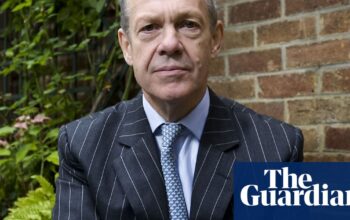The chief negotiator for the African group has cautioned that fair and just financing for climate adaptation is crucial for the survival of the continent, but discussions at Cop28 have not yet been successful.
The topic of adaptation is being debated in relation to the global stocktake (GST), which evaluates the progress of fulfilling the promises made in the 2015 Paris agreement. The highly anticipated global goal on adaptation (GGA) – a joint pledge suggested by the African group in 2013 and incorporated into the Paris agreement – is set to be finalized in Dubai. This goal aims to encourage political measures and funding for adaptation efforts at a level equal to that of mitigation.
However, there has been limited advancement, and nations have not reached a consensus on specific goals and standards, let alone devised an effective structure and financial agreements that accurately reflect the strain on developing countries, particularly in Africa. It remains uncertain if the anticipated result will be achieved, as countries have thus far been unable to reach an agreement on the preliminary wording.
According to Ephraim Mwepya Shitima, the leader of the African group of negotiators, we are currently facing an urgent need for adaptation and our vulnerable communities are facing the consequences. It is crucial for the world to take action and take measures to close the adaptation gap through effective financing to ensure that Africans are not left behind. This should be a top priority in the outcome of Cop28.
“Survival in Africa depends on our ability to adapt to the changing climate. It is a critical matter of life and death. We require both action and financial assistance to effectively adapt to severe droughts, destructive storms, and rising sea levels that threaten our existence. As of now, progress has been lacking, but with a few days remaining, there is still hope for us to make a positive impact.”
Leaders from around the world have recognized the substantial lack of financial support for nationwide efforts to address the impacts of climate change. According to a recent report from the United Nations, an annual amount of $194-366 billion (£155-290 billion) is needed for adaptation measures. However, recent data shows that funding actually decreased by 15% in 2021 compared to the previous year, with only $24.6 billion being allocated. While the Organisation for Economic Co-operation and Development claims that the pledge of $100 billion for adaptation made by developed countries in 2009 has finally been fulfilled this year, developing nations are demanding an independent evaluation of the data.
During the last days of talks, African nations are advocating for a fair and just resolution on issues such as mitigation, adaptation, loss and damage, and implementation, all of which require climate finance.
Samuel Abu Jinapor, the Minister of Lands and Natural Resources in Ghana, discussed the importance of understanding the historical context of the climate crisis, which was largely caused by the Industrial Revolution. He pointed out that the countries that benefited from this economic development are also the ones responsible for a significant portion of emissions. As economies strive to achieve prosperity, there is a need to scale down and implement measures to mitigate the global impact.

Africa as a whole is responsible for a mere 4% of worldwide greenhouse gas emissions and receives just 2% of funding for sustainable energy sources.
Several countries have significant reserves of fossil fuels, located in the continent with high development needs, debts, and limited access to financial resources. These natural resources, including oil, coal, and gas, play a significant role in a country’s credit rating and ability to secure funding. African representatives argue that requesting these countries to leave these resources untouched without providing any compensation is unjust and biased.
According to Jinapor, in Ghana, certain forest communities are being forced to find alternative sources of income instead of relying on cacao production due to its contribution to deforestation. He emphasized the importance of fair financial support for adaptation, mitigation, and dealing with the effects of climate change. He also stated that a different approach is needed for climate financing instead of replicating the unequal global financial system.
Countries in Africa are advocating for the inclusion of climate funding in the GST, along with broader changes to global financial systems that currently benefit wealthier nations. According to Mohamed Nasr, Egypt’s lead negotiator, the GST must address existing disparities and difficulties in financial flows. Without proper funding, any talk of reducing or gradually eliminating fossil fuels will have little impact in reality, as countries will struggle to follow through with actions.
The United States, United Kingdom, European Union, and fossil fuel companies are advocating for any mention of phasing out or reducing the use of fossil fuels in the GST to be labeled as “unabated.” This is causing concern among developing countries, particularly those in Africa. Nasr expressed that allowing the use of “abated” fossil fuels would benefit wealthier developed countries with access to costly carbon capture technology, while discriminating against developing countries that cannot afford it.
The Guardian has learned that countries in Africa have been actively advocating for the Just Transition program, which was created during Cop27 in Egypt. They are urging for a more comprehensive approach that links climate action and financial efforts with sustainable development. However, this stance has been met with opposition from major economies such as the US, EU, UK, Canada, and Australia.
According to Mohamed Adow, director of the thinktank Power Shift Africa, in Dubai, the top priority is phasing out the use of fossil fuels. The development of renewable energy sources is not significant unless it is done fairly and justly. If this is achieved, there will be no opposition from the African group or least developed countries. However, it is crucial to ensure that the language used takes into consideration the needs of poorer nations.
Increasing renewable energy sources by three times does not necessarily mean a decrease in fossil fuel usage. Therefore, it is important to also set a specific date for phasing out the use of fossil fuels.
Source: theguardian.com


